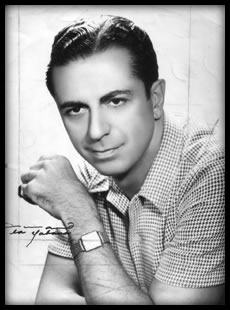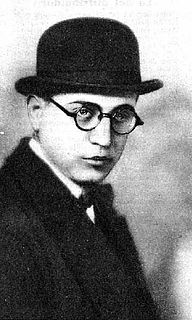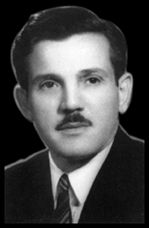Related Research Articles

Cinema of Argentina refers to the film industry based in Argentina. The Argentine cinema comprises the art of film and creative movies made within the nation of Argentina or by Argentine filmmakers abroad.
Francisco Múgica was an Argentine film director, film editor and cinematographer. He was born and died in Buenos Aires.

José A(gustín) Ferreyra, popularly known as "Negro Ferreyra", was an early Argentine film director, screenwriter and film producer. He was also sometimes credited as production designer.

Mario Soffici was an Argentine film director, actor and screenwriter of the classic era.

Luis César Amadori was an Italian - Argentine film director and screenwriter and one of the most influential directors in the Cinema of Argentina of the classic era. He directed over 60 films between 1936 and 1967, writing the scripts to over 50 pictures.

Manuel Romeo was an Argentine film director, screenwriter, dramatist and score composer, and one of the influential directors in the cinema of Argentina of the classic era. He directed and wrote over 50 films between 1931 and 1951 even composing the musical scores for several.

Ada Cornaro was a prominent Argentine film and theatre actress, tango dancer and singer of the 1930s and 1940s.

Juan Carlos Thorry, born José Antonio Torrontegui, was an Argentine film actor, tango musician and director.

Cayetano Amadeo Biondo (1902–1986) was an Argentine film actor.

Alita Blanca Barchigia, better known as Alita Román, was an Argentine film actress of the Golden Age of Argentine Cinema (1940–1960).

Francisco "Paco" Madrid was a Spanish (Catalan) journalist, writer and screenwriter.
María Esther Buschiazzo (1889–1971) was an Argentine actress.
Oscar Valicelli was an Argentine film actor.
Rodolfo González Pacheco (1882–1949) was an Argentine writer, playwright, orator, anarchistic journalist and activist. He was editor of the anarchist newspaper La Antorcha and, founder of the Teatro de Ideas. He died on July 5, 1949.

Mario Maurano was an Argentine film score composer and pianist, best remembered for his tangos. He was especially known for his orchestral work supporting starlet Libertad Lamarque, with songs including Te quiero (1946) and many more. He was a frequent collaborator with director Luis Moglia Barth in the Golden Age of Argentine cinema, and was particularly prolific in the late 1930s and 1940s, composing for films such as Twelve Women (1939), Confesión (1940), Con el dedo en el gatillo (1940), Huella (1940), and Boína blanca (1941). He also worked on films such as Caminito de Gloria (1939) with Luis César Amadori, and La Verdadera victoria (1944) with Carlos F. Borcosque.

Lumiton was a film production company founded in Argentina in 1932 at the start of the golden age of film in that country. Its lowbrow, populist films appealed to local audiences and were highly successful in Argentina and throughout Latin America. It was the main competitor to Argentina Sono Film in the 1940s. After World War II (1939–45) Lumiton faced increased government regulation, rising costs and loss of audiences to more sophisticated Hollywood productions. The company was forced to close in 1952.

Pepe Arias was an Argentine actor and comedian.

Miguel Gómez Bao was a Spanish-born Argentine actor of the Golden Age of Argentine cinema. He appeared in films such as Amalia, (1936), Safo, historia de una pasión (1943) and La pequeña señora de Pérez (1944). He also did much work for radio and appeared on Radio El Mundo in the late 1930s.
Pampa Film was an Argentine film production company that was active in the 1930s and 1940s. It is known for its classic Prisioneros de la tierra (1939).
References
- ↑ Insaurralde, Andrés (1 January 1994). Manuel Romero. Centro Editor de América Latina. p. 52.
- ↑ Comas, Àngel (1 January 2005). Diccionari de llargmetratges: el cinema a Catalunya durant la Segona República, la Guerra Civil i el franquisme, (1930-1975). Cossetània Edicions. p. 64. ISBN 978-84-9791-096-5.